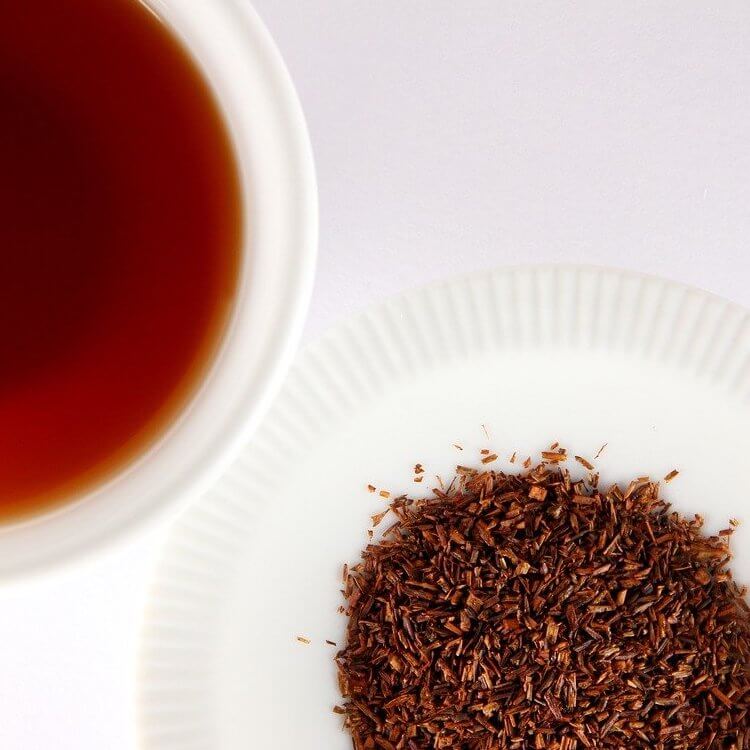What is Rooibos Tea?
Rooibos tea, also called red tea or red bush tea, is a herbal tea from South Africa. Rooibos tea is different from Chinese red tea, although the name and color are similar. Unlike other tea that are harvested from the Camellia sinensis tea plant, rooibos tea is actually an herbal drink that comes from the shrub, Aspalathus linearis. This plant grows only in the specific mountainous area of Cederberg north of Cape Town in South Africa.
How is Rooibos Tea Made?
The harvest of Rooibos leaves begins in December. The thin leaves and stems are cut by hand, before bruised with a mallet to start the oxidation process. During this process, the color will turn from green to a red-brown. The leaves are then laid out to dry in the hot sun.
What are the variety of Rooibos Tea?
There are a variety of rooibos tea. The most popular is the fermented, red rooibos tea.
Unfermented green rooibos tea is high in antioxidants similar to green tea, but without the bitterness. It’s brewed from rooibos tea leaves that aren’t oxidated.
Rooibos tea can also be blended with other herbs and fruits for a rich flavor and aroma.
What are the Potential Benefits of Rooibos Tea?
Rooibos tea is rising in popularity around the world, especially in America, Europe, and Japan because of its many potential health benefits.
- Rooibos tea is caffeine-free, making it suitable for kids and elderly to drink at any time of the day.
- Packed full of antioxidants that help protect against harmful diseases.
- Used as a remedy in South Africa to help soothe skin infections and rashes.
- Rooibos tea may reduce pain in the joints and muscles.
- May lower blood pressure, which supports heart function.
- May help relieve asthma and allergies due to anti-inflammatory and bronchodilator properties, which relaxes the lungs.
Rooibos tea is a simple, delicious, and caffeine-free drink that can be enjoyed at any time of the day. The taste is sweet and earthy, and not as bitter as other teas due to a lack of tannins.

